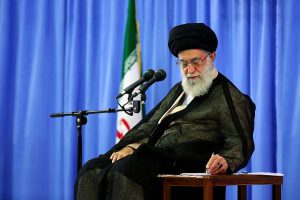Marc Lynch has a fascinating post examining a recent (unofficial) document posted on a jihadist forum, entitled A Strategic Plan to Improve the Political Position of the Islamic State of Iraq. The whole post is worth reading for insight into the current state of thinking about the Iraq war on the part of Al Qaeda in Mesopotamia (AQM) and its supporters, but I was particularly struck by this passage, discussing the document’s take on the reasons for AQM’s declining fortunes since 2006-7:
It explains its setbacks, which it argues came at the height of its power and influence, on what it calls two smart and effective U.S. moves in 2006-07: an effective U.S. media and psychological campaign, which convinced many that the “mujahideen” had committed atrocities against Iraqis and killed thousands of Muslims; and the Awakenings, achieved through its manipulation of the tribes and the “nationalist resistance.” The document doesn’t mention the “Surge” much at all, at least not in terms of the troop escalation which most Americans have in mind.
Back in the U.S., of course, hawks have been keen to emphasize the third element–the troop escalation–at the expense of the other two. After all, to suggest that the Awakenings bore primary responsibility for the drop in violence comes uncomfortably close to implying that jihadists are not a monolithic group of bloodthirsty fanatics who “hate us for our freedom”; instead, it might suggest that we should actually talk to them and perhaps (gasp!) offer the relative moderates among them incentives to defect. Classic appeasement, in other words. Similarly, although talk of winning “hearts and minds” is all the rage in counterinsurgency (COIN) discussions these days, hawks have been careful not to focus too much on the role that atrocities (by the U.S. or its enemies) play in swaying public opinion; that might imply that the U.S. should, for instance, close Guantanamo and Bagram, thoroughly reform its detainee system, or halt the drone war in Afghanistan and Pakistan.
Far better, from the hawks’ perspective, to credit the drop in violence and the wane in AQM’s fortunes entirely to the surge. Doing so sends a nice unambiguous message: when in doubt, the solution is always more troops, more money, more war.
Iraq experts continue to vigorously debate which factors were most important in causing the drop in violence, and in any case I am no Iraq expert myself. Nonetheless, it is striking that strategists associated with AQM itself appear to attribute their downfall primarily to public perceptions of their own atrocities, and to the U.S. decision to reach out to former members of the insurgency, rather than to the surge itself.





I would like the editors to comment on my source for much of to doings in Iraq, namely CounterPunch’s Cockburn bros. They have been pushing the narrative that Sadr is an independent nationalist unlike the other front runners. They’ve covered why this is unacceptable to the coalition.